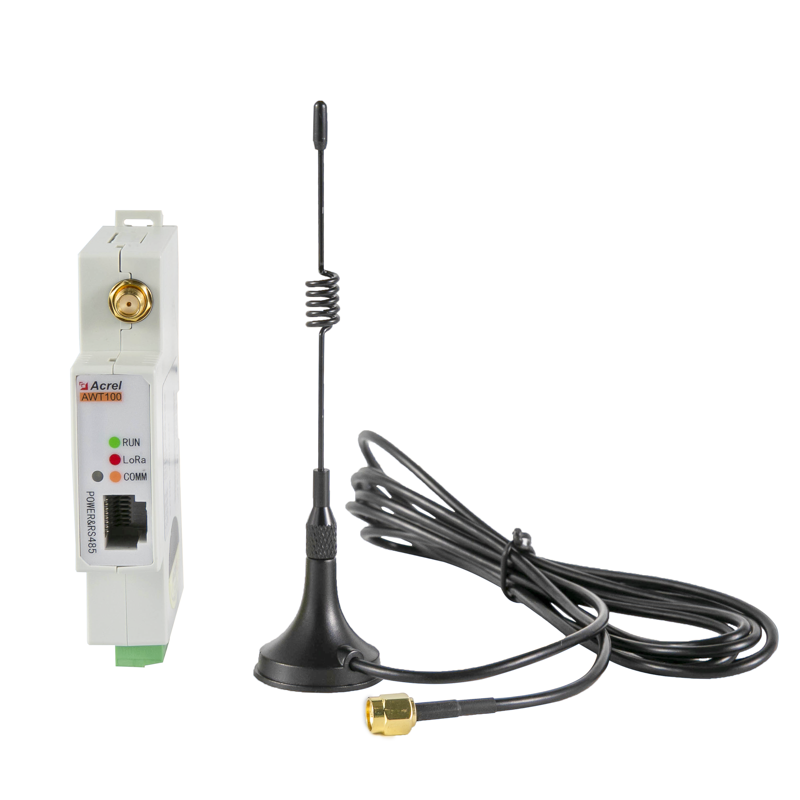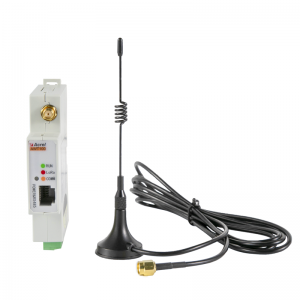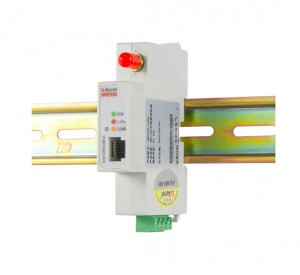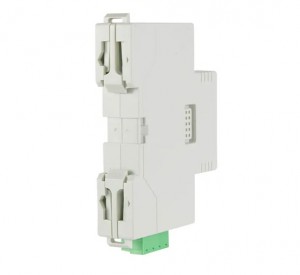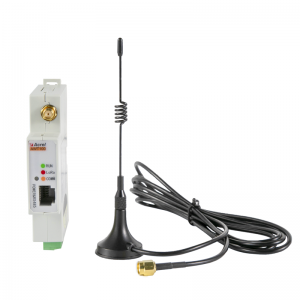Acrel AWT100-LoRaHW IoT Smart LoRa Gateway
Acrel AWT100-LoRaHW IoT Smart LoRa Gateway
General
At present, with the advantages of easy deployment, low construction cost, and a wide range of applicable environments, wireless technology has gradually become an important direction of network development and application in the future industrial Internet. AWT100 data conversion module is a new type of data conversion DTU introduced by Acrel. AWT100-LW wireless communication terminal can upload data to the server through LoRa communication.
Feature
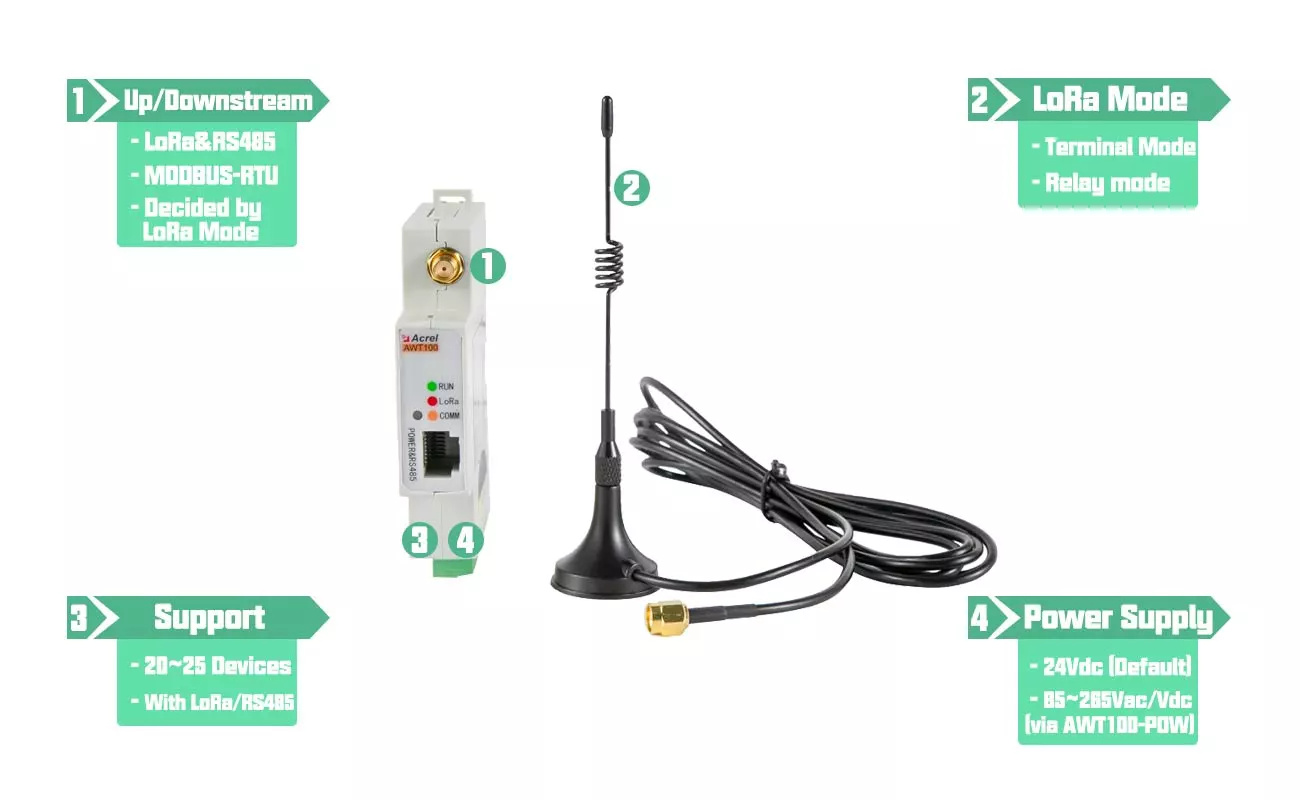
Panel
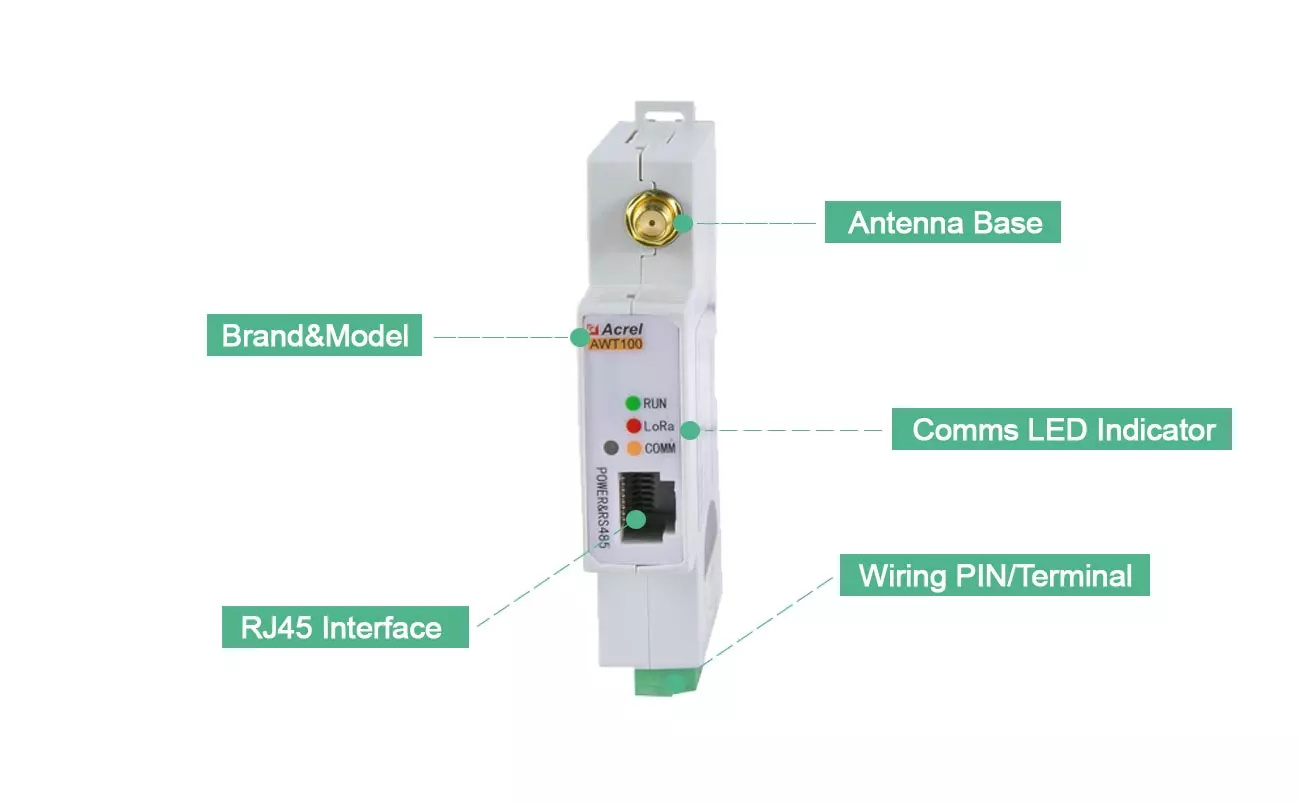
PIN Overview
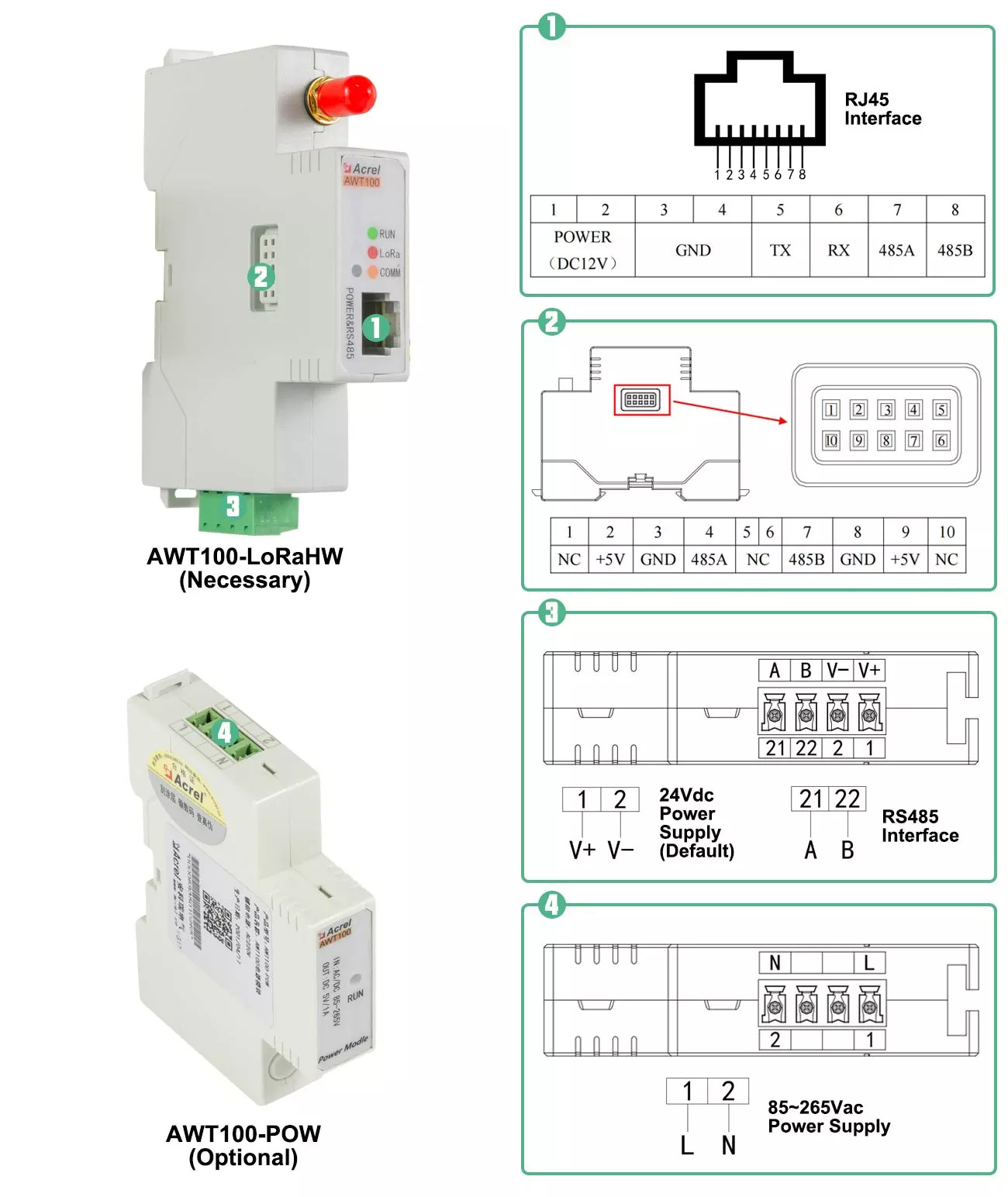
Wiring Diagram
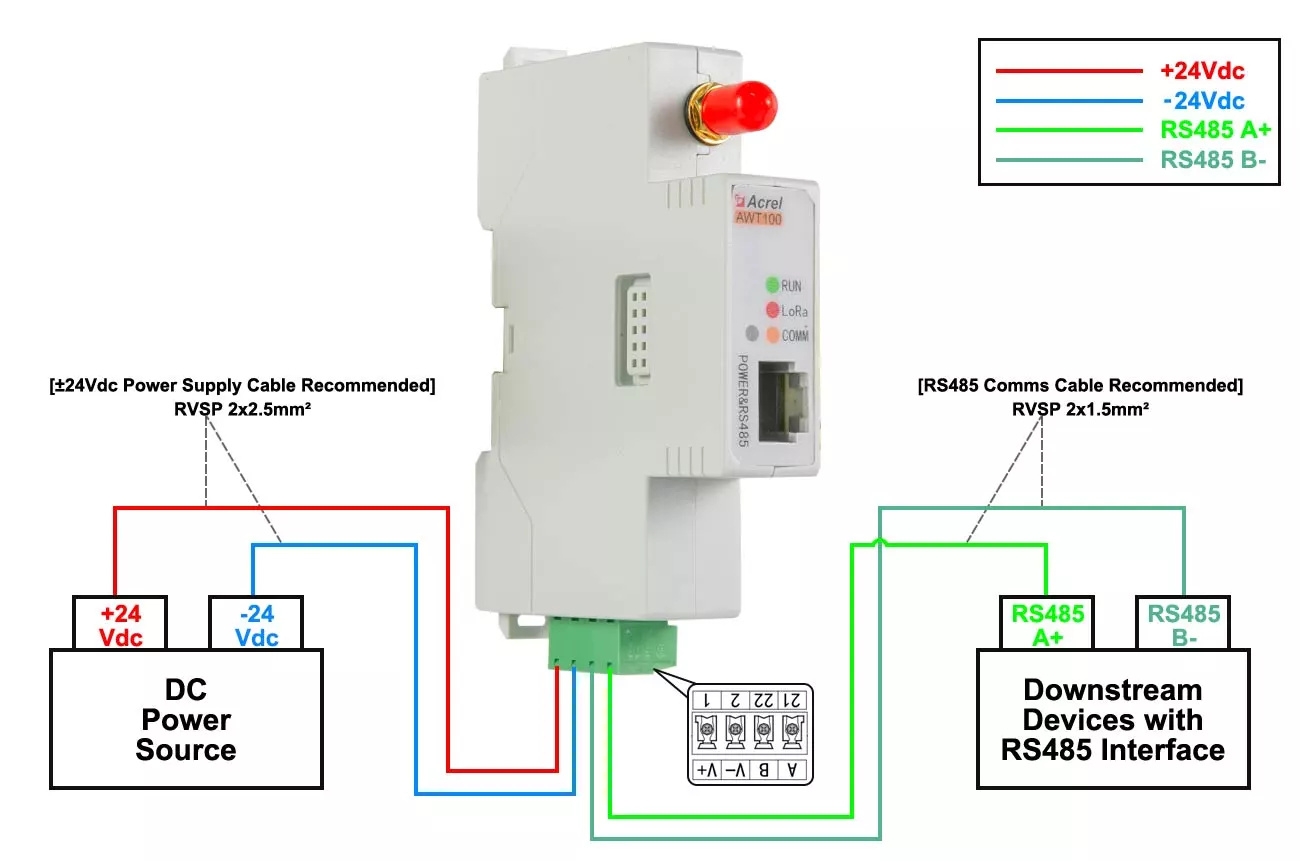
Wiring Diagram of AWT100-LoRaH
(24Vdc Power Supply via default Configuration)
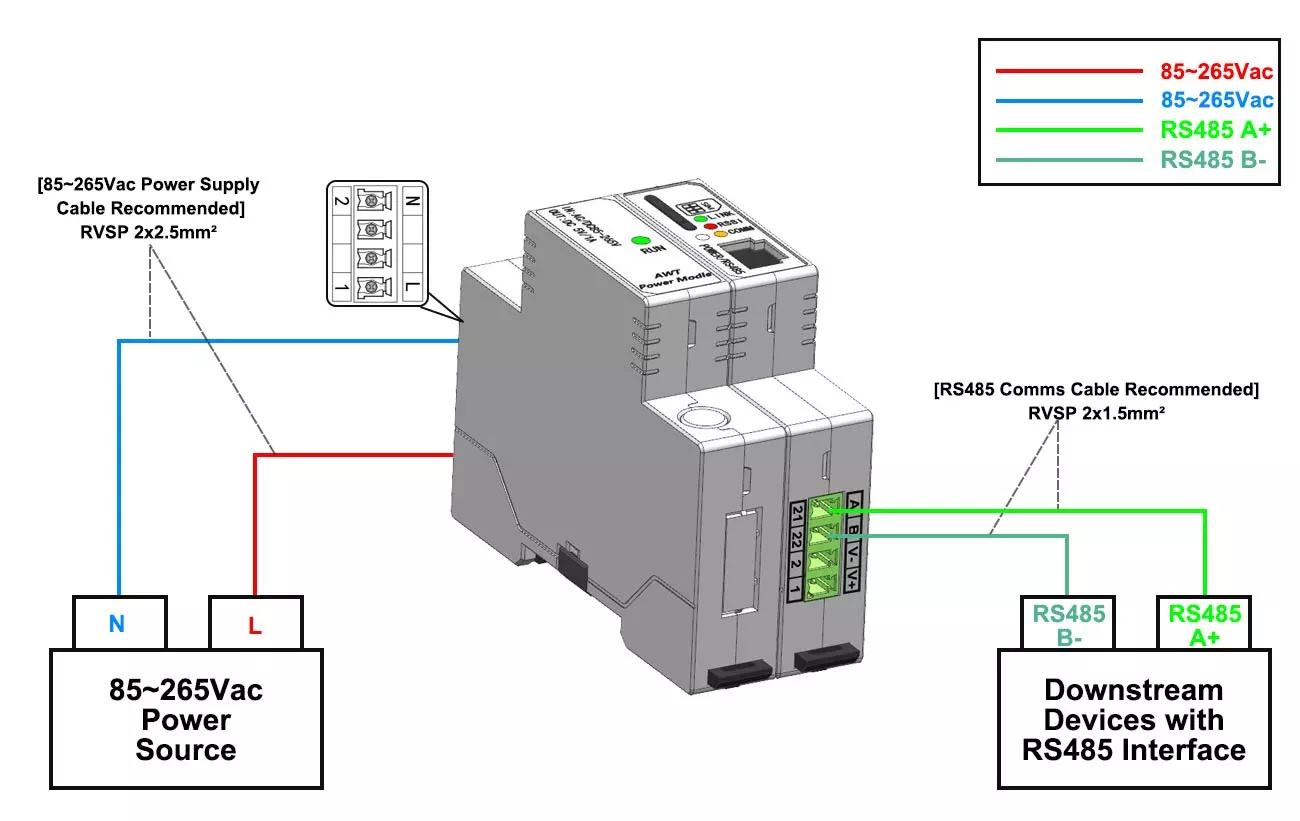
Wiring Diagram of AWT100-LoRaHW
(85~265Vac Power Supply via AWT100-POW Power Module)
LoRa to 4G Solution Structure
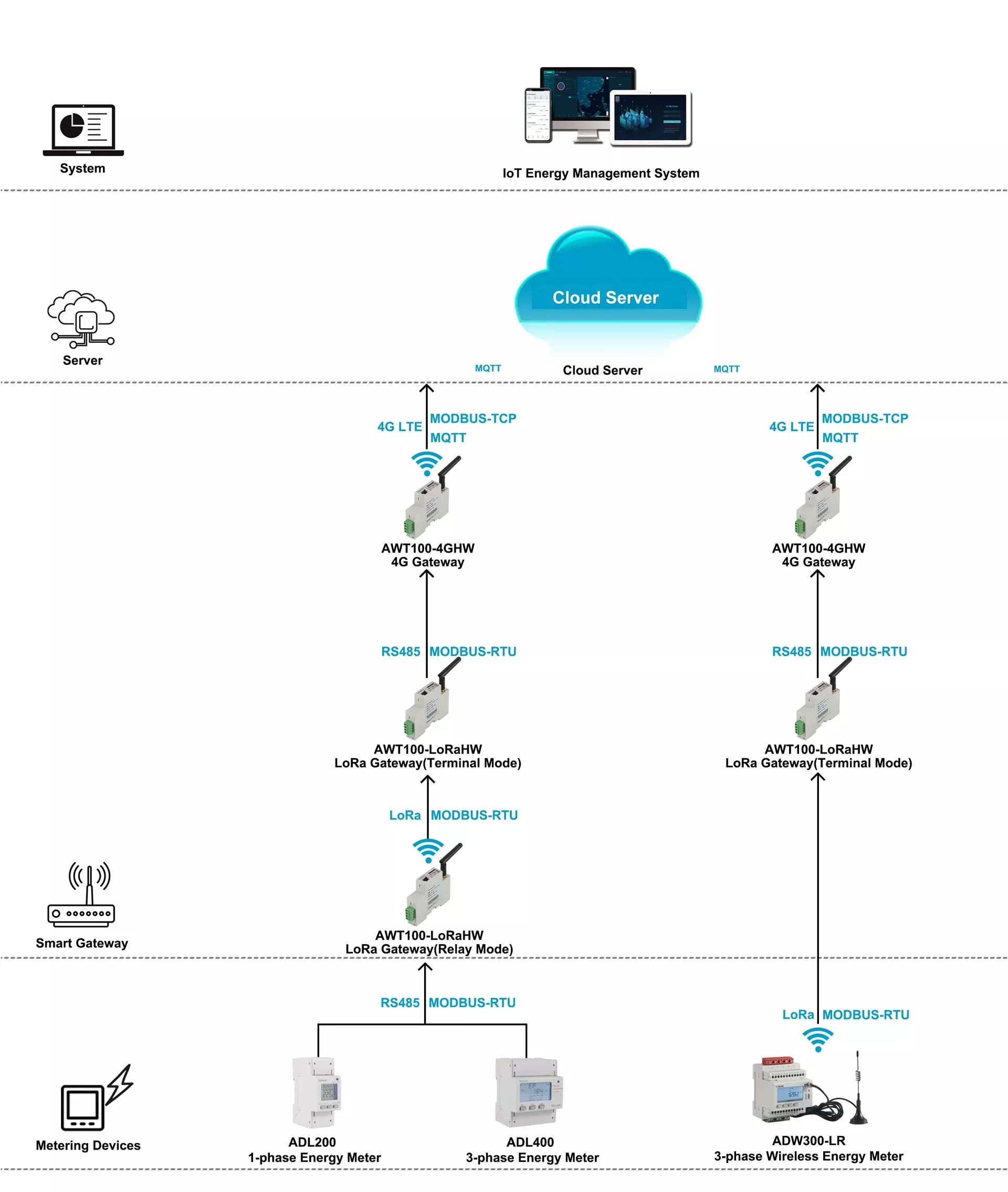
LoRa to 4G Installation
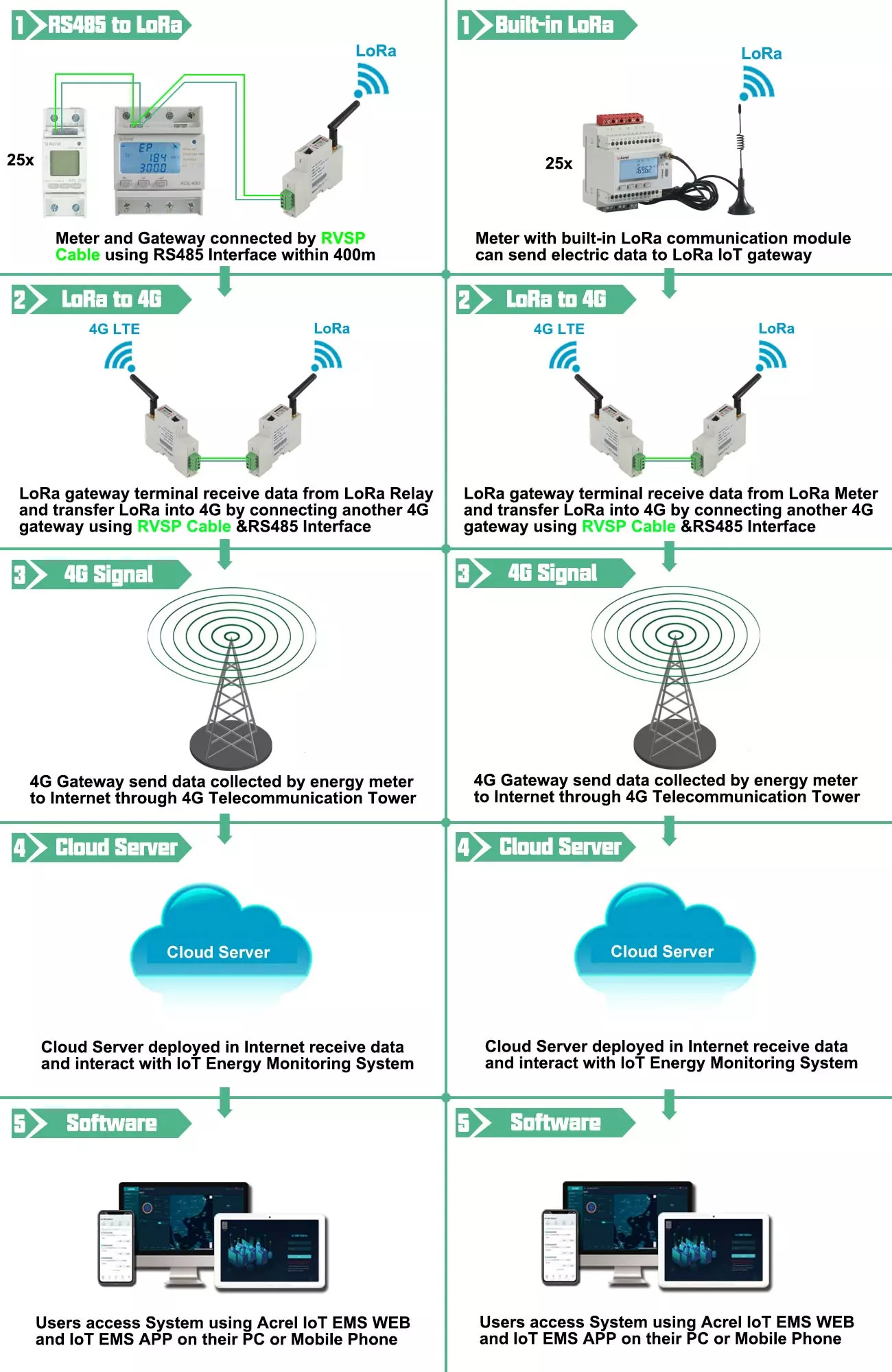
LoRa to WiFi Solution Structure
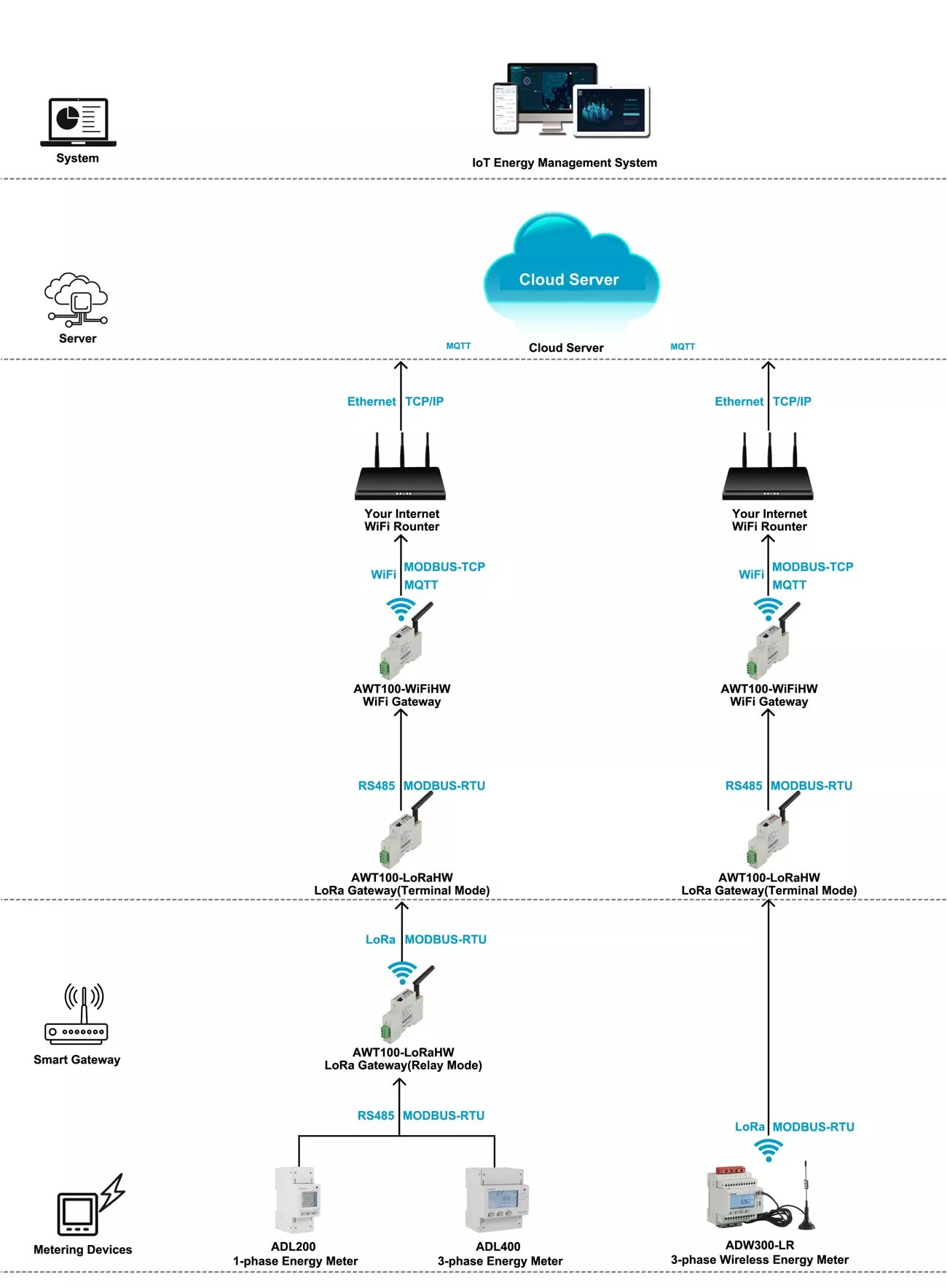
LoRa to WiFi Installation
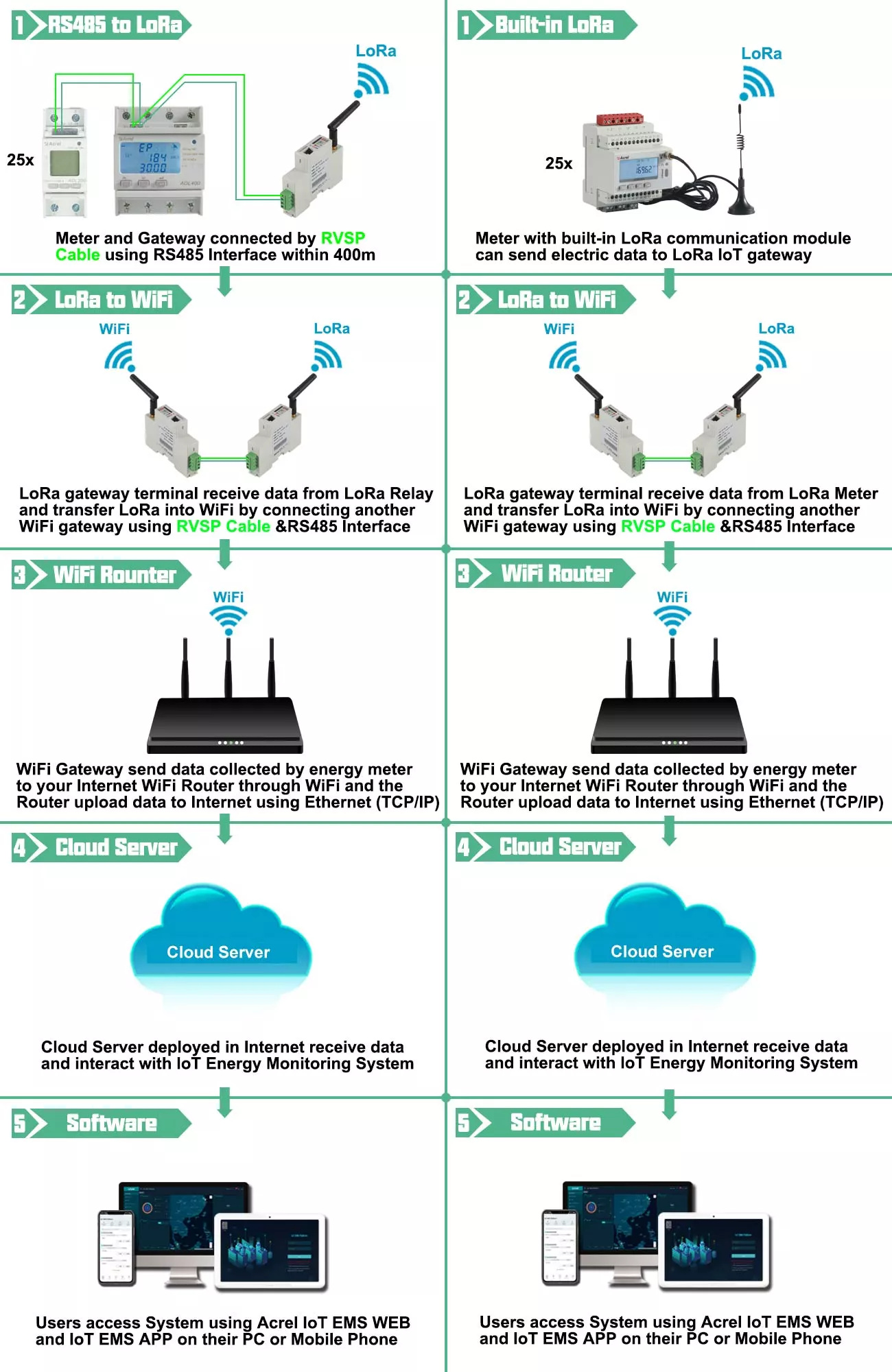
Outline and Dimension
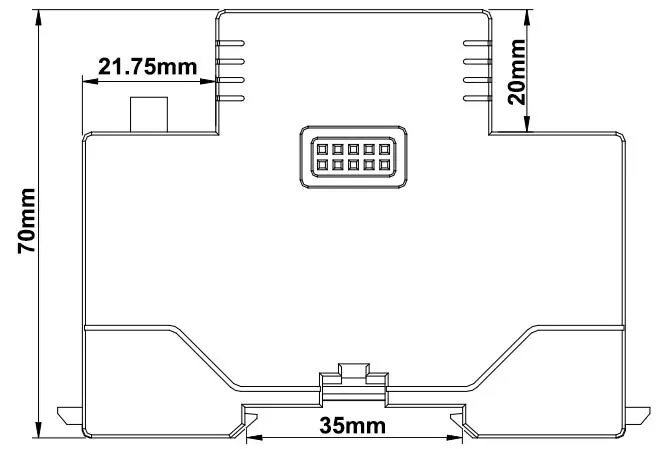

Benefits of AWT100-WiFi Wireless Communication Gateway
• 1 size
• DC 12-24V
• RS485 modbus-RTU
• TCP / IP protocol
• Transparent transmission, MQTT
• LoRa
AWT100 Series Wireless Communication Terminal FAQs
The AWT100-LoRaHW of relay mode has 2 function, One is to receive the data from metering devices like energy meter using RS485 interface and send these data to AWT100-LoRaHW of terminal mode. In order words, LoRa relay can transfer RS485 wired communication into LoRa wireless communication.
The other function of AWT100-LoRaHW of relay mode was to expand the LoRa communication distance by using the structure of RS485→LoRa Relay-1→LoRa Relay-2→LoRa Terminal. It was pretty much like adding a extra LoRa relay in the communication structure.
The AWT100-LoRaHW of terminal mode has 1 main function, it can receive the data from LoRa relay gateway or from energy meter with built-in LoRa communication module like ADW300/LR and send the data to a 4G, WiFi or Ethernet gateway using RS485 interface for further data transmission.
Indoor LoRa communication distance is about 200~300m and outdoor LoRa communication distance is about 1~2km. Please be aware the work-site condition, whether with strong signal interruption, will affect the actual LoRa communication distance.
The communication distance of RS485 should be within 400m when put into practical use. But normally these RS485 wired communication won’t be major part of the whole communication because we will transfer RS485 wired communication into LoRa wireless communication for replacement by using AWT100-LoRaHW of relay mode.
The LoRa communication protocol of AWT100-LoRaHW is standard MODBUS-RTU, and when a AWT100-LoRaHW of terminal mode connect to other Acrel gateway like AWT100-4GHW, it will be 4G wireless communication of MODBUS-TCP and MQTT protocol while the 4G could be served as a final data upstream methods.
So, for this request just like FAQ stated in AWT100-4GHW:
Acrel can provide 2 protocol for doing it but require the software and communication engineers who were belong to the 3rd party system’s company and have the ability to do the communication protocol adjustment.
The first protocol is Json format MQTT protocol which is used by Acrel system and devices with MQTT protocol. And normally Acrel devices (which will be served as final data upstream devices) can simultaneously support both MODBUS and MQTT protocol which allow the 3rd party users to adjust the Acrel products to their own system (Normally using MQTT and MODBUS-TCP protocol, so the 3rd party system need to support both MQTT and MODBUS protocol).
The second protocol is Acrel API protocol which could be used for data transferring between system of Acrel and 3rd party system. And in this situation, a whole set of Acrel solution from basic metering devices like energy meter to IoT gateway and to a system need to be used.
Acrel AWT100-LoRaHW IoT Smart LoRa Gateway
Technical Parameters
| Parameter Name | AWT100-GPS |
AWT100-WiFi
|
AWT100-CE
|
AWT100-DP
|
| Work | Positioning accuracy: 2.5-5m | support 2.4G frequency band WiFi rate: 115200bps |
Ethernet rate 10/100M adaptive
|
Profibus address: 1~125. (Note) |
|
Downlink
|
RS485 Communication | |||
|
Uplink
|
GPS positioning | WiFi wireless |
Ethernet communication
|
Profibus communication |
|
Working current
|
Static power consumption: ≤1W, transient power consumption: ≤3W
|
Static power consumption: ≤0.5W, transient power consumption: ≤1W |
||
|
interface
|
50Ω/SMA(Faucet) |
RJ45
|
DP9 | |
|
Serial port type
|
RS-485 Communication
|
|||
|
Baud rate
|
4800bps、9600bps、19200bps、38400bps(Default 9600bps)
|
|||
|
Operating Voltage
|
DC24V or AC/DC220V①
|
|||
|
Operating temperature
|
-10℃~55℃
|
|||
|
Storage temperature
|
-40℃~85℃
|
|||
|
Humidity range
|
0~95% Non-condensing
|
|||
| Parameter Name | AWT100-4G | AWT100-NB | AWT100-2G | AWT100-LoRa AWT100-LW |
| Working frequency | LTE-FDD B1 B3 B5 B8 LTE-TDD B34 B38 B39 B40 B41 CDMA B1 B5 B8 GSM 900/1800M |
H-FDD B1 B3 B8 B5 B20 | GSM 850 EGSM 900 DCS 1800 PCS 1900 |
LoRa 460 510MHz |
| Transmission rate | LTE-FDD Maximum downlink rate 150Mbps Maximum uplink rate 50Mbps LTE-TDD Maximum downlink rate130Mbps Maximum uplink rate 35Mbps CDMA Maximum downlink rate 3.1Mbps Maximum uplink rate 1.8Mbps GSM Maximum downlink rate 107Kbps Maximum uplink rate 85.6Kbps |
Maximum downlink rate 25.2Kbps Maximum uplink rate 15.62Kbps |
GPRS Maximum downlink rate 85.6kbps Maximum uplink rate 85.6kbps |
LoRa 62.5kbps |
| Downlink | RS485 Communication | |||
| Uplink | 4G Communication | NB-IoT Communication | 2G Communication | LoRa Communication |
| SIM card voltage | 3V, 1.8V | / | ||
| Working current | Static power: ≤1W, Transient power consumption: ≤3W | Static power: ≤0.5W, Transient power consumption: ≤1W |
||
| Antenna interface | 50Ω/SMA(Faucet) | |||
| Serial port type | RS-485 | |||
| Baud rate | 4800bps、9600bps、19200bps、38400bps(default 9600bps) | |||
| Operating Voltage | DC24V or AC/DC220V | |||
| Operating temperature | -10℃~55℃ | |||
| Storage temperature | -40℃~85℃ | |||
| Humidity range | 0~95% Non-condensing | |||
| Type | AWT100-LoRa | AWT100-LW | AWT100-LW868 | AWT100-LW923 | AWT100-LORAHW |
| Working frequency | 460~510MHz | 470MHZ | 863-870MHZ | 920-928MHZ | 860-935MHZ |
| Transmission rate | LoRa 62.5kbps | ||||
| Downlink | RS485 Communication | ||||
| Uplink | LoRa Communication | ||||
| Working current | Static power:≤0.5W, Transient power consumption:≤1W | ||||
| Antenna interface | 50O/SMA(Faucet) | ||||
| Serial port type | RS-485 | ||||
| Baud rate | 4800bps、9600bps、19200bps、38400bps(default 9600bps) | ||||
| Operating Voltage | DC24V or AC/DC220V | ||||
| Operating temperature | -10℃~55℃ | ||||

